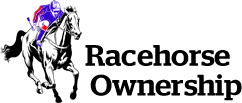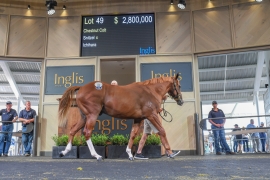Selling Racehorses – FAQs
Thoroughbred Racing and Breeding is not a pursuit for the faint hearted, we all know that.
However, if we are fortunate enough to sell THAT horse, in my opinion (with just a hint of bias) the first thing we should know is: What are the tax implications?
This aspect of racehorse ownership is very underestimated, especially for hobbyists, given that there as there is so much “pub talk” out there along the lines that “you don’t pay tax when you sell a racehorse”. You are soon to learn that this is not always the case.
Acknowledging the confusion in the horse world as to the tax implications of selling horses, I’ve put together an article addressing the most frequently asked questions in this area. After a read, I hope many of the queries you have in this area can now be put to rest.
This article is designed to handle various selling scenarios, in terms of hobbyists, tax businesses, racehorses and breeding stock so I hope that there is something for everyone.
- Sale of racehorses and FAQs
Q1. I am a hobby racehorse owner and have just sold my 1/6th share in a promising racehorse for $50,000, do I pay tax?
Answer
The first question to ask is “how much did your share cost”?
A racehorse is designated by the ATO to be a “Personal Use Asset” (PUA) and, as such, we must refer to the tax rules relating to this class of asset. Under the PUA rules, an asset acquired for $10,000 or less (including GST) is exempt from capital gains tax (CGT).
Accordingly, if the share in this racehorse cost $10,000 or less, there would be no CGT to pay on the sale of this horse. If the share cost did not meet this exemption, the horse would be subject to CGT.
Q2. How do I calculate the capital gain I just realised on the sale of my hobby racehorse?
Answer
If the horse is subject to CGT, the gain is calculated by deducting from the sale proceeds the relevant “cost base” elements, being:
- First element: the cost of acquiring the asset (e.g. purchase price)
- Second element: incidental costs on acquisition and disposal (e.g. commission, legals etc)
- Fourth element: capital expenditure increasing or preserving the value of the asset or of installing or moving the asset (e.g. training)
- Fifth element: capital expenditure to establish, preserve or defend title
The third element, being “costs of owning the asset” are not available to Personal Use Assets, hence racehorses miss out. Items such as agistment are therefore excluded if third element costs are not available.
Furthermore, a capital gain is reduced by 50% if the horse was held for greater than 12 months.
Q3. What rate of tax do I pay on a horse capital gain?
Answer
The general rules apply for taxing capital gains, i.e. they are taxed at the normal marginal tax rate of the owner.
If the horse gain is subject to the 50% CGT General discount, this marginal rate is effectively halved. For those on the highest tax rate, this means a tax rate of 22.5% (50% @ 45%).
Q4. What if I make a capital loss on the sale of my racehorse?
Answer
Bad news – capital losses are not recognised on the sale of racehorses, thus only “non-horse” capital losses can be used to offset and reduce any capital gain on the sale of a racehorse. For example, a capital loss on the sale of a rental property can be used to offset the gain on the sale of a racehorse.
Q5. Can a capital gain on the sale of a racehorse be subject to the generous CGT Small Business Concessions?
Answer
Unfortunately no – a racehorse is not an “active asset” used in a taxation business, thus it fails one of the basic criteria.
Q6. Do I have to charge GST on the sale of my hobby racehorse?
Answer
Most “hobbyists” cannot meet the basic GST registration test, i.e. carrying on an “enterprise”, thus the answer is generally no.
Q7. I was gifted a racehorse by a close family member, do I pay CGT when I sell the horse?
Answer
Though the family member paid nothing for the horse, under the CGT deeming rules, the horse is acquired by the family member for its market value.
If it can be argued that the market value of the racehorse interest at the time of gifting is in excess of $10,000 that horse is potentially subject to CGT on sale (see Q1. above), otherwise the horse is exempt from tax upon sale.
Q8. I am a hobby breeder and prefer to breed my own horses for racing. If I spend less $10,000 or less on my service fee to breed a particular horse, is the horse exempt from CGT on sale?
Answer
If the intention was to breed the horse for racing, yes that racehorse would be exempt from CGT on sale.
N.B. If the intention was to breed that horse for sale, it is likely that the horse would be subject to CGT, regardless of the service fee paid being less than $10,000. Some good news – foals sold with this “profit purpose” at least have the benefit of third element cost base items being included in the cost base, e.g. agistment.
- Sale of breeding stock and FAQs
Q9. I sell my hobby broodmare, used originally for racing. Do I pay CGT on the sale?
Answer
If her cost as a yearling was $10,000 (inc. GST) or less, there will be no CGT upon sale. If she cost more than $10,000, yes, CGT applies.
Q10. Would the answer to Q9 above be any different if the mare was sold “in-foal”?
Answer
No, only the cost of the mare (first element) is taken into account for the purpose of the “$10,000” rule. The cost of the service fee re the stallion she is carrying to has no effect on her CGT cost base in this scenario.
N.B. The sale of a mare with a “foal at foot” is seen by the ATO as being the “one asset” and it is only the cost of the mare that is taken into account if determining whether the sale is subject to CGT. Thus, if the mare cost was less than $10,000, the sale of the mare and foal would be exempt from CGT.
Q11. What is the cost base of a hobby mare sold “in-foal”?
Answer
Assuming the mare is subject to CGT, the cost base includes the cost of the mare, the cost of the service fee and the items listed at Q2 above.
Q12. What are the tax implications of “pin-hooking” weanlings?
Answer
These horses are acquired and sold for a definite profit making purpose, thus it is highly likely that any capital gain would be subject to taxation, regardless of the cost of these weanlings.
It is unlikely that the weanlings would attract the 50% CGT discount, given that weanlings are turned over as yearlings generally within 12 months of purchase.
Q13. What are the tax implications of selling stock within my integrated business of racing and breeding?
Answer
To date, we have only been dealing with mares, foals, racehorses etc sold by hobbyists.
If a tax business sells any horse, the tax profit is the sale proceeds (excl.GST) less the tax carrying value of the stock. Furthermore, the sale has no relevance to CGT and thus the 50% CGT discount does not apply.
You are welcome to contact me if you wish me to clarify or expand upon any of the matters raised in this article.
End of release.
DISCLAIMER
Any reader intending to apply the information in this article to practical circumstances should independently verify their interpretation and the information’s applicability to their particular circumstances with an accountant specialising in this area.
PAUL CARRAZZO CPA
CARRAZZO CONSULTING CPAs
22 BLACKWOOD ST,
NORTH MELBOURNE
VIC 3051
TEL: (03) 9329 7044
FAX: (03) 9329 8355
MOB: 0417 549 347
E-mail: paul.carrazzo@carrazzo.com.au
Web Site: www.carrazzo.com.au


